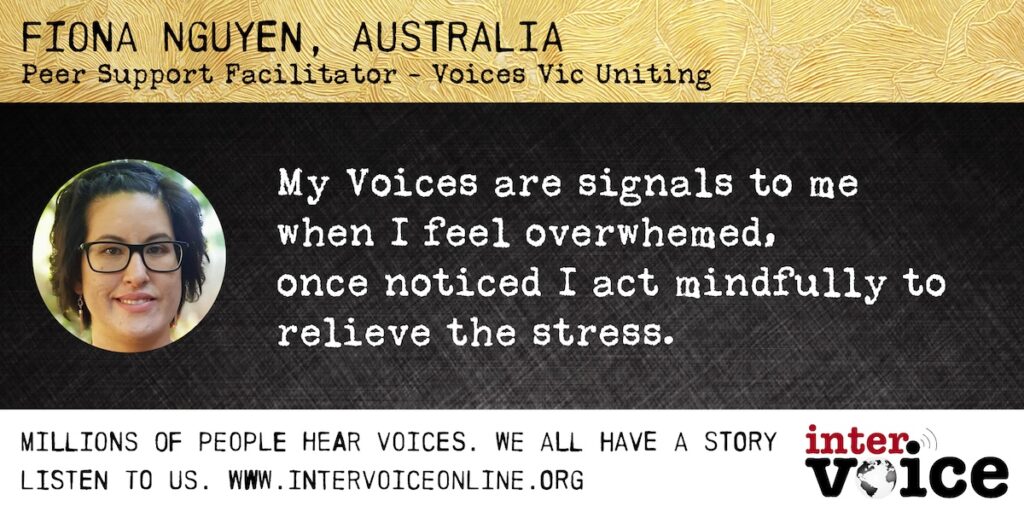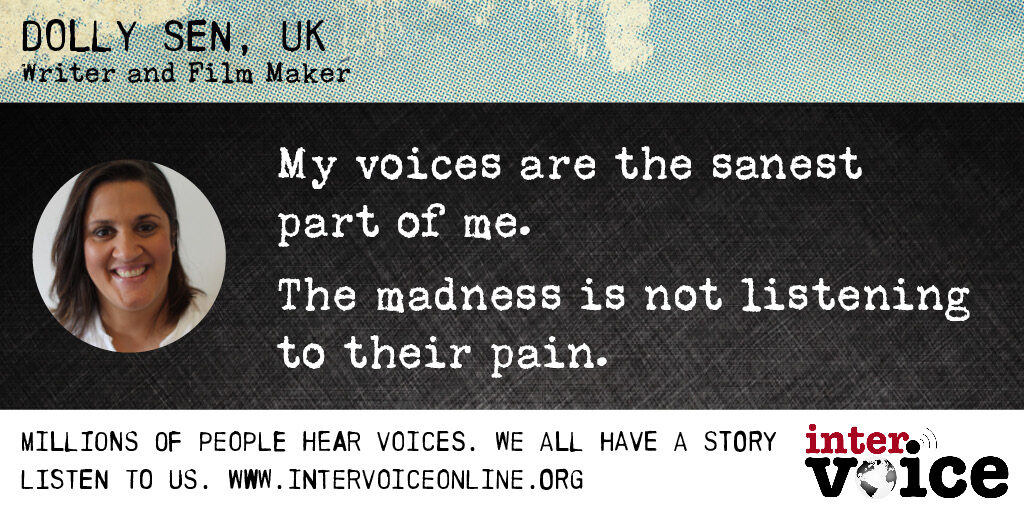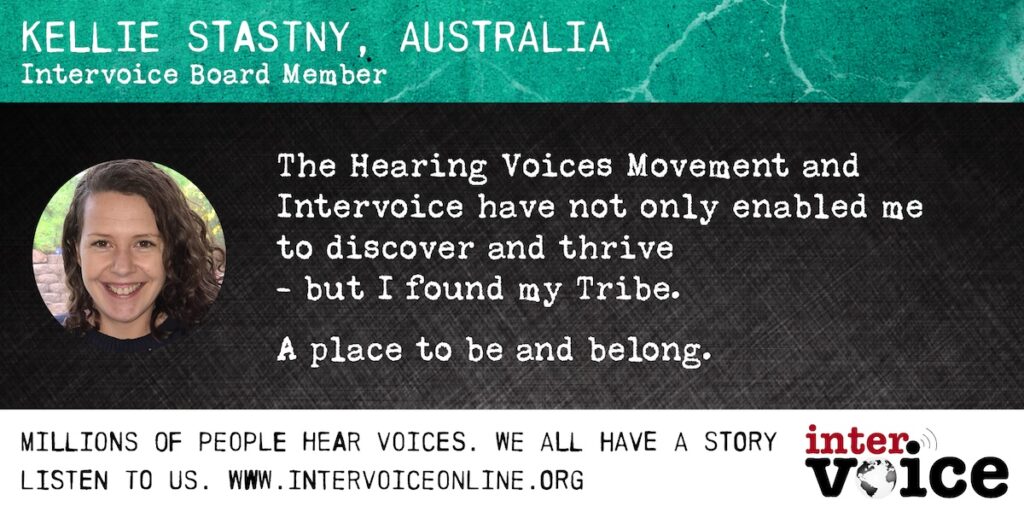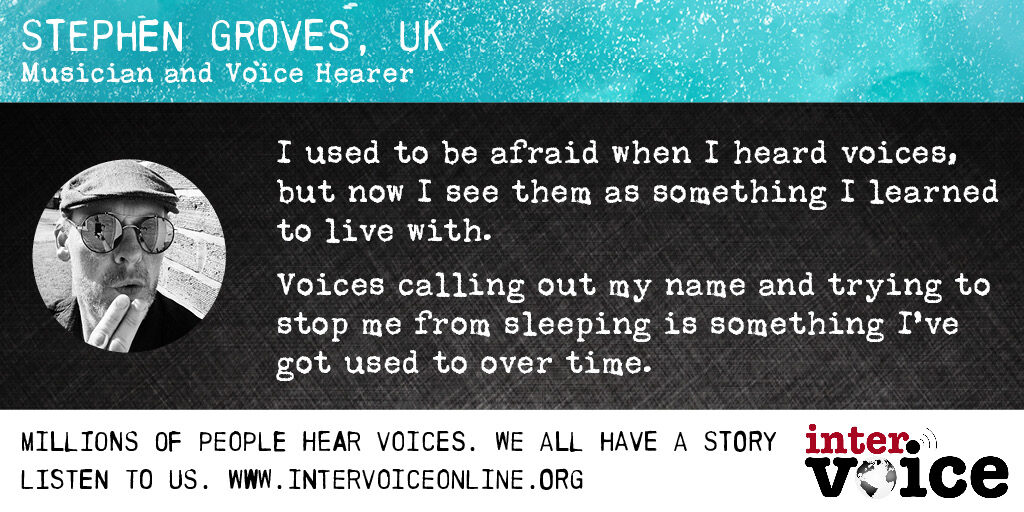If the voices you hear frighten you, you’re not alone. Voice Collective have put together six tips that others have found helpful to deal with scary voices. At the end, why not list you’re own ideas too? The more tools you have in your toolbox, the easier you’ll find it to cope when things get tough.
Voice Collective, a UK project that supports children and young people who hear voices, has a great ‘tips sheet’ for young people who are struggling to cope with scary voices. Suzanne Engelen has kindly translated these into Dutch.
Also See: Omgaan met beangstigende stemmen (Dutch Language version)
Download: Dealing With Scary Voices
For more information on Voice Collective, please see: www.voicecollective.co.uk
1. Say no
Some people hear voices that tell them to hurt themselves, hurt people they care about or do other things that they don’t want to do. This can be really frightening – especially if you think your voices are really powerful or nasty. No matter who the voices say they are, or what they tell you to do, remember that you’re in control of your own body. No one has the right to tell you what to do with it.
Saying ‘no’ isn’t always easy – especially at first. You might find that the voices get louder, threaten you or are nasty. Sometimes it helps to think of them as if they’re toddlers who are having a tantrum because they’re not getting their own way. If no-one pays attention, they get bored.
If this happens, stay strong. Use some of the coping strategies you already have, or try some of the other ones on this sheet. Realising that voices like this are full of hot air is a real step forward.
2. Challenge them
If someone in your life said something nasty about you, you’d probably tell them to stop being mean. You might tell them that they’re wrong about you, and say why. It can help to deal with voices in the same way. So, if your voices are saying something you don’t like, why not try:
a) Writing a mantra:
A mantra is simply a sentence or two that says something comforting that helps you remember what you really think (not what the voices say) and feel safe. If I was hearing a voice that said my mum hates me and is going to poison me, for example, my mantra could be: “I know my mum loves me. I trust her and know that she would never try to hurt me”.
b) Talking back:
If your voices say something that you wouldn’t usually accept from someone in your life – tell them that. Tell them, as calmly as possible, that you don’t agree with them and that they’re being rude. Try not to get into an argument with them. Just say what you want to say and ask them to behave themselves.
c) Getting a second opinion:
If you’re not sure what to say back to the voices, talk it over with someone you trust. Sometimes writing down some of the things the voices say most often can help. You can think together about some replies, write them down and use them next time you need to.
3. Ignore them
Sometimes challenging your voices can feel too difficult. At times like these, it can be helpful to work on ignoring them. At first, this can take a lot of effort, especially if they are very loud or are saying things that are making you worry.
Try writing a list of things you can do to distract yourself or feel more relaxed and keep it with you to give you ideas when you most need them.
As well as trying to take your mind off them, you can try sending them away for a time. Say something like ‘I want to watch TV now, I’ll speak to you in half an hour’. If the voices try and speak to you it’s important to ignore them until the time you’ve said. When that time arrives, talk to the voices as agreed. This can take a bit of time to master, but it can really work!
4. Use your imagination
Our imaginations can be a powerful tool. Some people are good at imagining sounds, others at dreaming up images. If you have this skill, why not try using it to make the voices seem less scary.
If you can imagine what the voices look like, how could you make them seem less frightening? Would they be as scary if they had a different face, a funny hat or a squeaky voice? What about if they were naughty children, bullies or a bad tempered, but harmless, old man?
Drawing or writing about the voices and using this to change them is a good starting point. Part of their scariness comes from how you think about them, so it stands to reason that if you change how you think about them they’ll be less scary.
5. Listen with kindness
This one might sound a bit strange, but if the voices are being nasty you could try treating them with kindness. This doesn’t mean agreeing with them, or accepting what they say, but saying ‘you must feel really bad to say such
nasty things’ or ‘it’s sad that you need to be so mean’.
Sometimes, if the voices are saying something that is similar to how you feel, but much more intense, it can help to say ‘Yes, I do feel a bit annoyed at my sister – thank you for noticing’. It can help to see nasty voices as bullies. Bullies have often been through difficult times themselves.
Bullying is never OK, but taking the moral high ground can help you feel more in control. It shows you that you have the power to choose how you respond to the voices. They’re not calling the shots. Also, if the voices are linked to the way you feel in some way – getting angry with them can end up making things worse.
6. Express yourself
If your voices sound really angry, hurt or distressed it may be a sign that you’ve got some feelings that you need to let out. Creativity can really help here – especially if you’re not sure what you’re feeling. Why not try drawing, painting, writing or making something?
Close your eyes, take a deep breath and see what happens. Try not to fear the way you feel – there are no good or bad emotions and we need all of them to be healthy. The key is finding ways to express them that don’t cause us, or the people around us, problems.












